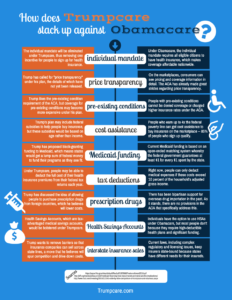Richard Wolf, Gregory Korte and Jayne O’Donnell, USA TODAY 6:02 p.m. EDT May 12, 2016
WASHINGTON — Republicans won the first round Thursday in a separation of powers battle against President Obama that once again focuses on his most prized achievement: Obamacare.
Federal district Judge Rosemary Collyer, a Republican appointee, ruled that the law did not provide for the funds insurers need to make health insurance policies under the program affordable.
While the law provides for tax credits, she said, it does not authorize an appropriation for slashing deductibles and copayments. Without those reductions from insurers, many consumers could not afford to buy insurance.
“Congress authorized reduced cost-sharing but did not appropriate monies for it,,” Collyer said in her 38-page ruling. “Congress is the only source for such an appropriation, and no public money can be spent without one.”
Collyer blocked her own decision from taking effect while awaiting a likely appeal from the administration.
Cost-sharing subsidies reduce consumers’ insurance payments — an important feature of the Affordable Care Act, because deductibles are rising. Under the law, subsidies are available to people who earn between 100% and 400% of the federal poverty level, with extra assistance available for those up to 250%. For a family of four, that’s about $24,000 to $61,000.
The Commonwealth Fund estimated up to 7 million people might have plans with cost-sharing reductions this year.
The ruling does not represent as big a threat to the health care law as two previous conservative challenges swatted down by the Supreme Court in 2012 and 2015. The first would have gutted the law; the second would have eliminated tax credits in many states.
“It’s a setback, and it’s a distraction … but a lot of people think the administration will win on appeal,” said Katherine Hempstead, who heads the insurance coverage team at the Robert Wood Johnson Foundation, a public health philanthropy.
House Speaker Paul Ryan heralded the decision as “an historic win for the Constitution … the executive branch is being held accountable.”
The Republican-controlled House voted to sue Obama over his executive actions in July 2014. The health care lawsuit was initiated four months later.
Jonathan Turley, a George Washington University law professor who represented the House of Representatives in the lawsuit, called the opinion a historic ruling reaffirming Congress’s power of the purse.
“Judge Collyer’s opinion is a resounding victory not just for Congress but for our constitutional system as a whole,” he said in a statement on his blog. “We remain a system based on the principle of the separation of powers and the guarantee that no branch or person can govern alone.”
White House press secretary Josh Earnest was dismissive of the decision. “It’s not the first time that we’ve seen opponents of the Affordable Care Act go through the motions to try to win this political fight in the court system,” he said.
“It’s unfortunate that Republicans have resorted to a taxpayer-funded lawsuit to re-fight a political fight that they keep losing. They’ve been losing this fight for six years, and they’ll lose it again.”
Elizabeth Wydra, president of the liberal Constitutional Accountability Center and the lawyer for House Minority Leader Nancy Pelosi in the court challenge, called it an “unprecedented ruling allowing a partisan faction of Congress to use the courts to settle a political dispute over the interpretation of a statute.” She predicted it would be overruled in federal appeals court.
Collyer previously denied Republicans’ effort to sue over another aspect of the law — the administration’s unilateral delay in implementing its mandate that most large employers offer health insurance or pay a penalty. While GOP opponents didn’t object to delay, they argued Obama lacked the authority to do it without congressional approval.
Questions about ICD-10 codes and reimbursement? Physician Credentialing and Revalidation ? or other changes in Medicare, Commercial Insurance, and Medicaid billing, credentialing and payments? Call the Firm Services at 512-243-6844 or credentialing@thefirmservices.com



